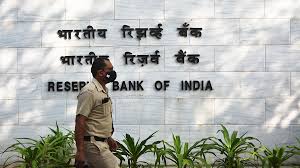FinTech vs. Global Privacy Laws: Are You Ready for What’s Coming?
2nd August 2025
 Biometric Payments: The Next Big Trend in Secure Transactions
Biometric Payments: The Next Big Trend in Secure Transactions
.jpg) The Future of Payments: Trends Reshaping Transactions in 2025
The Future of Payments: Trends Reshaping Transactions in 2025
 How Open Banking is Shaping Financial Services Globally
How Open Banking is Shaping Financial Services Globally
 The Role of Cryptocurrencies in Cross-Border Payments
The Role of Cryptocurrencies in Cross-Border Payments
 Top Fintech Innovations Shaping 2025: The Future of Finance
Top Fintech Innovations Shaping 2025: The Future of Finance
 What the Future Holds for Digital-Only Banks: Navigating the Next Era of Banking
What the Future Holds for Digital-Only Banks: Navigating the Next Era of Banking
 The Impact of 5G on Fintech Services
The Impact of 5G on Fintech Services
 Flipkart Gets a Lending Licence: A Bold Leap into Embedded Finance
Flipkart Gets a Lending Licence: A Bold Leap into Embedded Finance
 How AI is Transforming the Credit Scoring System
How AI is Transforming the Credit Scoring System
 QR Codes and the Cashless Leap: Transforming India's Financial DNA
QR Codes and the Cashless Leap: Transforming India's Financial DNA
 The Evolution of Fintech Regulation: What’s Next?
The Evolution of Fintech Regulation: What’s Next?
 The Rise of Contactless Payments: Benefits and Security Concerns
The Rise of Contactless Payments: Benefits and Security Concerns


31 July 2025
2 min read
8
The Reserve Bank of India (RBI) has issued a strong caution to banks and non-banking financial companies (NBFCs), highlighting emerging governance concerns driven by growing competitive pressures in the financial sector.
Speaking at the 109th Foundation Day of Karur Vysya Bank, RBI Deputy Governor J. Swaminathan said that some institutions, in their effort to maintain growth and profitability, are engaging in questionable practices such as creative accounting, regulatory arbitrage, and diluted internal controls. He stated that while such actions may help portray short-term success, they risk undermining long-term stability and public trust in the financial system.
“Driven by intense competitive pressures and a desire to project short-term success, the management of certain banks and NBFCs appears to believe that the ends justify the means,” Swaminathan warned.
The Deputy Governor noted that these practices, although not widespread, are concerning enough to warrant supervisory attention. The RBI is now intensifying its oversight mechanisms to ensure better risk management, compliance, and governance standards.
Swaminathan further emphasized that governance in banks must move beyond a box-ticking exercise. He cited instances where board-level strategies failed to translate effectively into ground-level execution, resulting in gaps across credit, risk, and compliance operations. This, he said, reflects a systemic failure in internal controls and accountability.
“Governance is not just about meeting regulatory expectations on paper. It’s about instilling a culture of responsibility, transparency, and ethical conduct at every level,” he added.
To strengthen supervision, the RBI is sharpening its focus on board governance, audit committee functionality, and institutional controls. The central bank aims to reinforce the accountability of boards and senior management in ensuring robust internal systems.
Swaminathan concluded by urging banks to focus not only on financial capital but also on managing trust, reputation, and institutional values. “Every rupee must carry not just interest, but intent,” he remarked.
The RBI's statement serves as a clear signal to financial institutions that growth should not come at the cost of governance, and that ethical banking practices are vital to sustaining long-term financial health and public confidence.
Read Next
 News
News
 Blog
Blog
 News
News
 News
News
 News
News
 News
News
Live Polls
Live Discussion
Topic Suggestion
Whom Do You Wish To Hear
Sector Updates
Leave your opinion / comment here